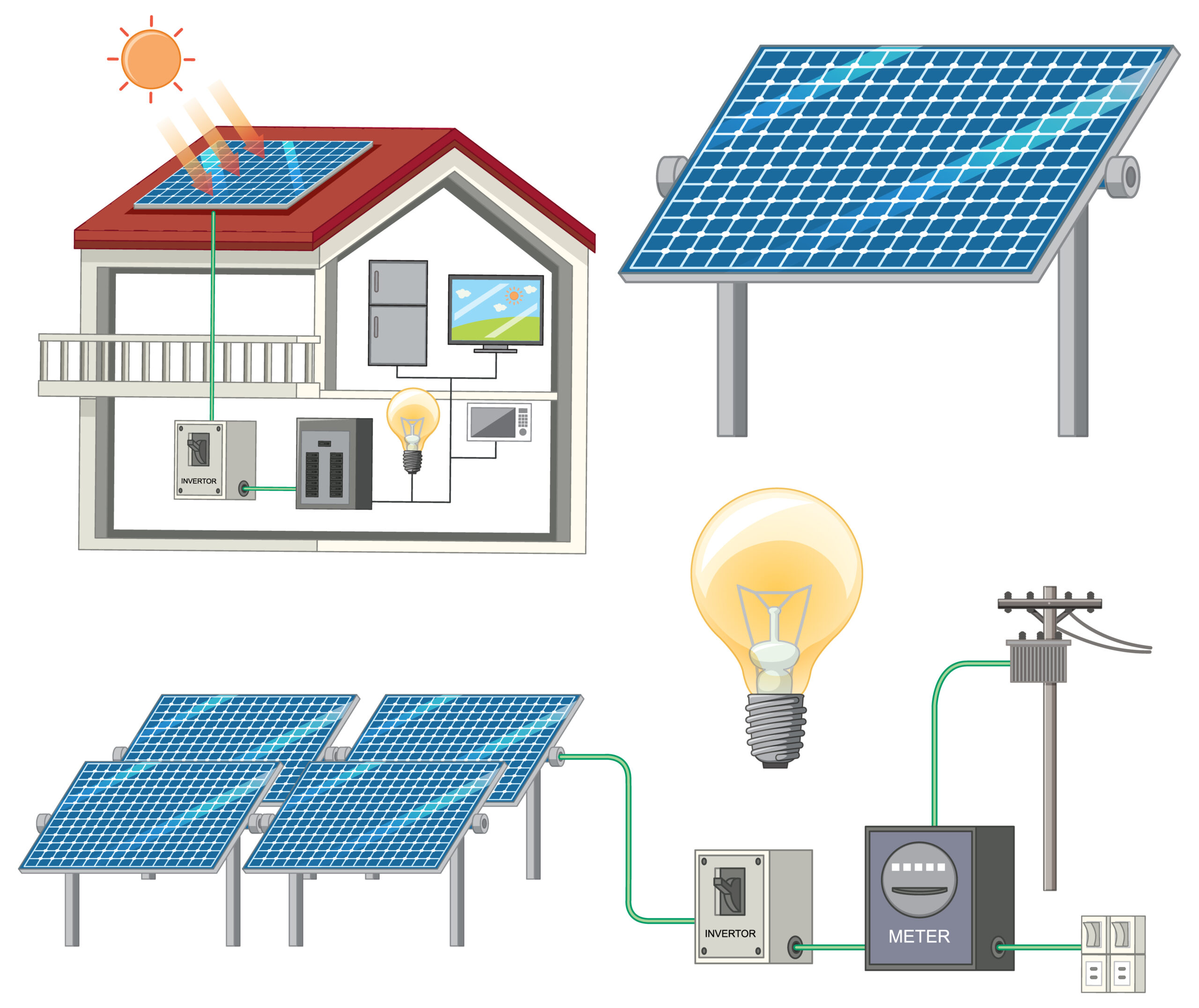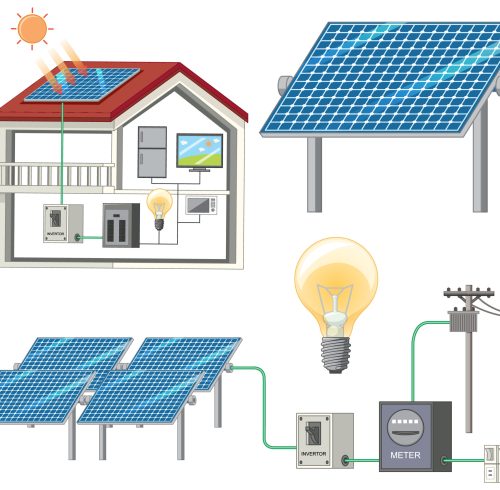
Introduction:
Net metering is an essential component of solar energy systems, allowing homeowners and businesses to receive credit for excess energy produced by their solar panels. In this article, we will explain how net metering works and the benefits it offers to solar energy users.
How Net Metering Works:
When your solar panels produce more electricity than you need, the excess energy is sent back to the grid. Net metering tracks the energy sent and consumed, crediting you for the surplus power at the same rate you would pay for electricity from the utility company.
Lower Energy Bills:
Net metering can significantly reduce your energy bills by allowing you to receive credit for the excess energy your solar system generates. This credit can offset your electricity costs during periods when your solar system is not producing enough power, such as at night or during cloudy days.

Encourages Renewable Energy Adoption:
Net metering provides an incentive for homeowners and businesses to invest in solar energy systems, as it helps to maximize the financial benefits of producing clean, renewable energy. This leads to increased adoption of solar power and a reduction in our reliance on fossil fuels.
Supports the Grid:
When solar energy users send excess power back to the grid through net metering, they help supply the grid with clean energy during peak demand periods. This reduces the strain on the grid and the need for utilities to invest in costly infrastructure upgrades.
Conclusion:
Net metering is an essential element of solar energy systems, offering numerous benefits to both solar energy users and the broader community. By understanding how net metering works and its advantages, you can make an informed decision about whether a solar energy system is right for you.





